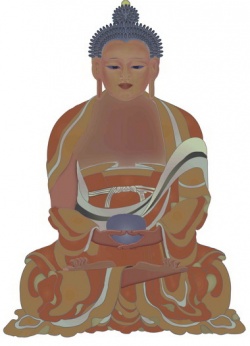Difference between revisions of "''bowed in obeisance and departed''"
Jump to navigation
Jump to search
(Created page with "thumb|250px| <poem> "bowed in obeisance and departed" 作礼而去 ( Jpn sarai-niko ) An expression used to conclude many sutras. ...") |
m (Text replacement - "Category:Japanese terminology" to "{{JapaneseTerminology}}") |
||
| Line 8: | Line 8: | ||
{{R}} | {{R}} | ||
[http://www.sgilibrary.org/search_dict.php?id=186 www.sgilibrary.org] | [http://www.sgilibrary.org/search_dict.php?id=186 www.sgilibrary.org] | ||
| − | + | {{JapaneseTerminology}} | |
Revision as of 12:58, 27 April 2014
"bowed in obeisance and departed"
作礼而去 ( Jpn sarai-niko )
An expression used to conclude many sutras. For example, the Lotus Sutra ends with the following words: "When the Buddha preached this sutra, Universal Worthy and the other bodhisattvas, Shariputra and the other voice-hearers, along with the heavenly beings, dragons, human and nonhuman beings—the entire membership of the great assembly were all filled with great joy. Accepting and upholding the words of the Buddha, they bowed in obeisance and departed." This expression represents the respect and gratitude the listeners show to the Buddha, who has preached his teachings to instruct and enlighten them.
